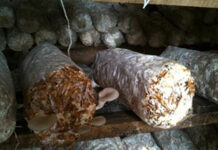Turkey’s development agency, TİKA, in partnership with the Prince Kimbugwe Foundation, has launched a poultry farming initiative in Uganda aimed at empowering women and vulnerable groups while strengthening the country’s poultry value chain.
The programme will support 55 farmers with modern tools, improved breeds, and technical support to enhance productivity and boost household incomes.
As part of the project, TİKA has provided 1,000 high-quality poultry breeds, an incubation system, and essential vaccinations to ensure disease control and flock health. Farmers will also benefit from a feed pellet production machine, a feed mixing and grinding unit, and training on sustainable poultry management.
According to the organizers, the initiative seeks to not only create reliable income streams for smallholders but also to strengthen food security and reduce poverty.
Uganda’s poultry industry has grown steadily over the past decade, driven by rising domestic demand for eggs and poultry meat. The sector contributes significantly to household nutrition, job creation, and rural development. Most poultry in Uganda is reared on smallholder farms, with women accounting for the majority of poultry keepers.
However, limited access to improved breeds, quality feed, veterinary care, and reliable markets has constrained productivity and profitability for small-scale farmers.

The value chain spans input suppliers, hatcheries, feed processors, farmers, traders, transporters, and retailers. At its core are smallholder producers, who supply live birds and eggs to urban and rural markets. Medium- to large-scale commercial farms, though fewer in number, play a key role in supplying hotels, supermarkets, and export markets.
Feed manufacturing is a critical node in the chain, as feed costs account for over 60% of production expenses. Interventions like TİKA’s support in feed processing and vaccination aim to strengthen these weak links, helping farmers to achieve better yields at lower costs.
Uganda currently produces an estimated 1.2 billion eggs annually and tens of millions of broiler chickens, serving both domestic consumption and regional export demand. Eggs are among the most affordable animal protein sources in the country, while poultry meat continues to gain preference in urban households.
Despite this growth, the industry faces challenges, including limited cold chain infrastructure, weak extension services, and disease outbreaks such as Newcastle disease, which often wipe out flocks and devastate farmers’ livelihoods.
The introduction of an incubation system under this initiative is expected to help farmers increase flock sizes more efficiently, while improved access to vaccination will reduce mortality rates. By equipping farmers with feed processing machinery, the project will also lower dependence on expensive commercial feeds, allowing beneficiaries to formulate balanced rations from locally available ingredients.
Speaking at the launch, representatives from the Prince Kimbugwe Foundation emphasized that the project aligns with Uganda’s broader agricultural development agenda and contributes to poverty alleviation by providing vulnerable groups with practical, income-generating opportunities.
For many rural households, poultry is a cornerstone of economic resilience—serving as a source of daily income from egg sales and a financial safety net in times of need. By investing in the grassroots of the poultry value chain, initiatives such as this hold potential to unlock inclusive growth, empower women, and enhance Uganda’s food security.








